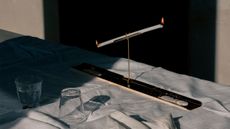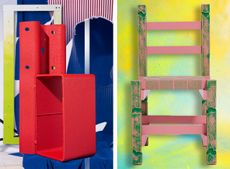Life-Enhancer of the Year, the shortlist: Wallpaper* Design Awards 2023
We reveal the shortlist for Life-Enhancer of the Year: Wallpaper* Design Awards 2023
- (opens in new tab)
- (opens in new tab)
- (opens in new tab)
- Sign up to our newsletter Newsletter
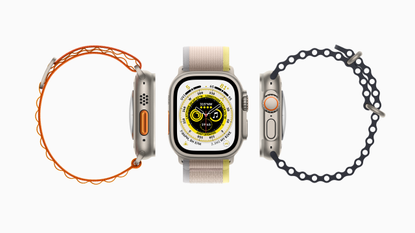
We reveal the shortlist for Life-Enhancer of the Year at the Wallpaper* Design Awards 2023. Ideas, objects and buildings that have improved our lives include an inflatable tent, an ultra-slim speaker, the latest Apple Watch release, the Nothing phone and tiny homes.
The winner of this, and all the Wallpaper* Design Awards 2023, will be announced in the February issue of Wallpaper*, on sale 5 January, as well as here on Wallpaper.com.
LIFE-ENHANCER OF THE YEAR SHORTLIST: WALLPAPER* DESIGN AWARDS 2023
66ºNorth x Heimplanet
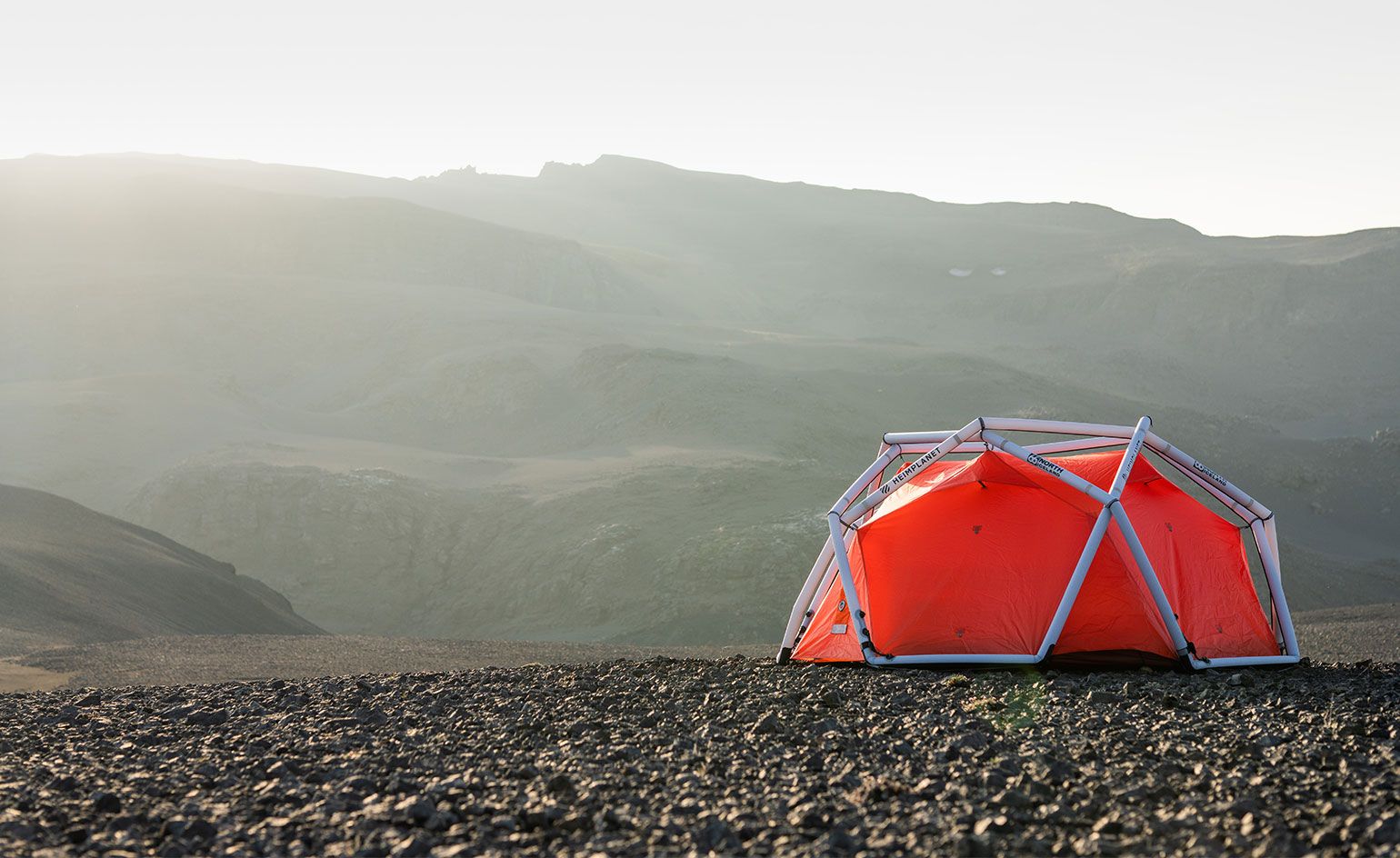
Embracing the extreme takes on new meaning with Icelandic outerwear brand 66 North’s latest release – a tent made in collaboration with the German camping gear innovator, Heimplanet, marking its first foray outside of clothing. Its geodesic dome structure is a signature feature of Heimplanet’s existing The Cave tent. Boasting an inflatable framework and constructed with ten crossing points, the tent’s reinforced structure is matched by high-quality weatherproof materials to stand up against wind, snow and rain. The collaborative iteration with 66 North showcases a bright orange hue – a reference to traditional emergency shelters, located all over Iceland, as well as a larger size to contain up to four people. A single pump easily inflates the spacious tent in under a minute, which means setting up base camp is more pain-free in all four seasons for both adventurists and nature lovers alike.
The Cave XL 4-Season Tent, $1,125, and pump, $40-$70
66north.com (opens in new tab)
Hidden Sound speaker

Swiss-based manufacturer Hidden Sound has debuted with two speaker set-ups, each of which is designed to add more depth to the listening experience while simultaneously taking up far less space. Founded by Jovan and Vesna Jelovac, along with Belgrade sound engineer Igor Radojević, Hidden Sound’s ECO and EVO set are based around a hefty rectangular sub-woofer and two ultra-slim flat panel speakers. At just 8mm thick, the panels are made of balsa wood, acoustic foam and aluminium, and use Distributed Mode Loudspeaker technology to generate the soundwaves, creating a fuller soundscape.
Hidden ECO Set, CHF 1,000, Hidden EVO Set, CHF 1,750
hiddensound.ch (opens in new tab)
Apple Watch Ultra

Billed as ‘the most rugged and capable Apple Watch ever’, the Apple Watch Ultra sports watch was developed in collaboration with explorers and athletes working in extreme environments. The 49mm titanium case strikes a balance between weight, ruggedness and corrosion resistance, and rises to the edge of the sapphire crystal display for added protection. The display itself is twice as bright as that of previous Watch models, so it can be read in direct sunlight; while an enlarged digital crown and a new Action button facilitate usage while in movement. Further physical qualities include a GPS antenna, a depth gauge (measuring underwater depth up to 40m), 36 hours of battery life, and specialised straps for outdoor adventures. Alongside, Apple has developed a dedicated Wayfinder watch face, providing useful information to runners, hikers and underwater enthusiasts.
Apple Watch Ultra, £849
apple.com/apple-watch-ultra (opens in new tab)
Nothing Phone (1)

We’ve been following Nothing’s journey into the mobile realm – culminating with the unveiling of the Nothing Phone (1) – with fascination. The London-based start-up has masterfully managed its inception and ethos from the start, clearly setting out its stall as a tech company that does things differently. It would be a stretch to claim that the new Nothing Phone (1) is the salve that soothes and banishes all these very contemporary problems, but it's the first time a new device feels like a step in the right direction, not merely an object built to placate the gods of consumption. Gone is the inscrutable sheen of a glass, metal, or plastic body, and in its place is a transparent Gorilla Glass back cover that lays bare the remarkable packaging of a modern consumer technology project. Woven around these components is a graphical light interface, the ‘Glyph’, a multifunctional display that’s embedded in the Phone (1)’s operating system. The frame is forged from 100 per cent recycled aluminium, whilst 50 per cent of the plastics used are also recycled. Packaging is paper, and the company promises at least three years of software updates to lengthen its lifespan.
Nothing Phone (1), available in black or white.
128GB storage, 8GB memory, £399; 256GB storage, 8GB memory, £449; 256GB storage, 12GB memory, £499
nothing.tech (opens in new tab)
Tigín Tiny Homes by Common Knowledge
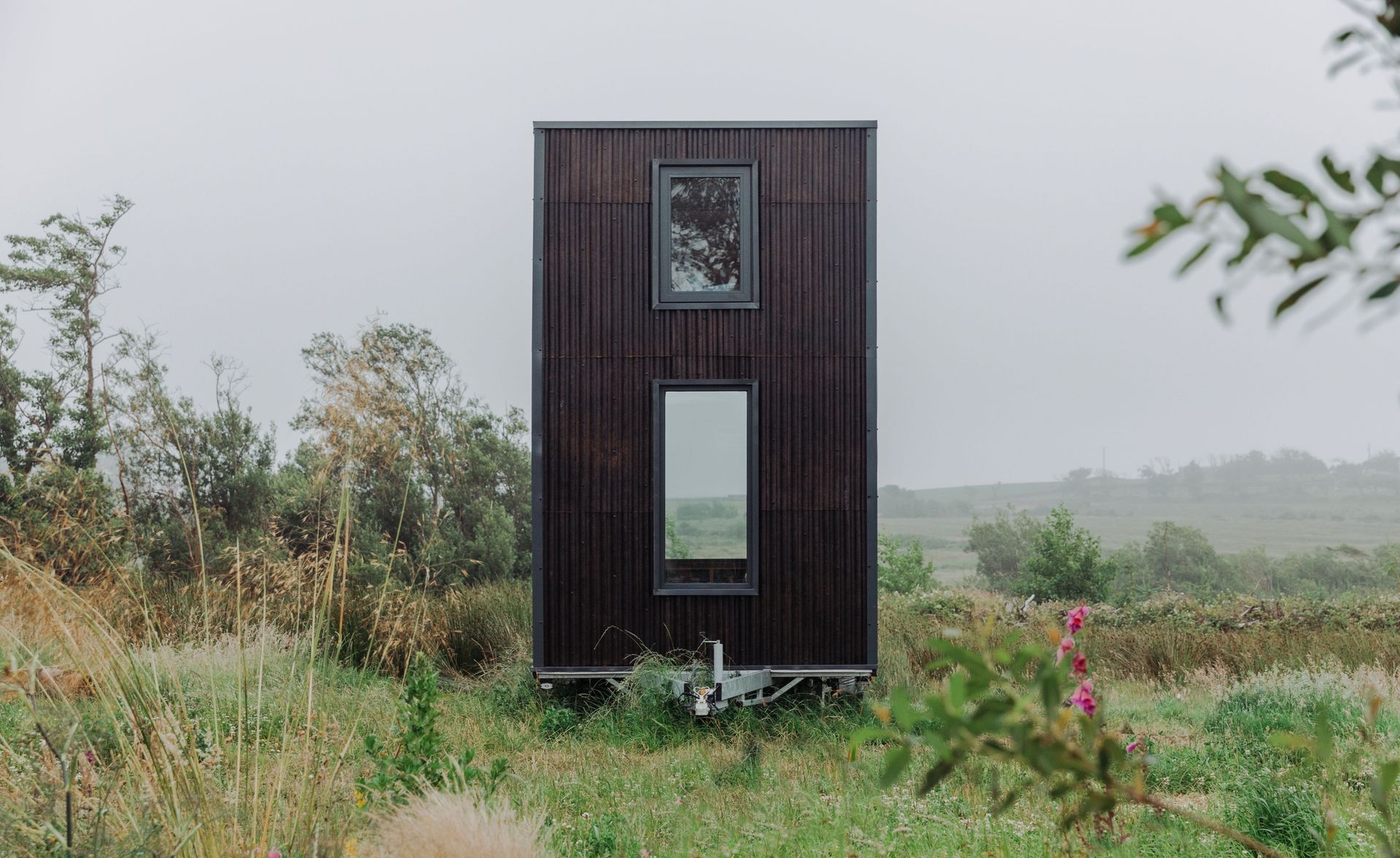
Tígín Tiny Homes are mobile small homes or cabins that don't pretend to be a future housing solution for all of us, but that are also refreshingly thoughtfully designed and gimmick-free. The creators, an Irish social enterprise called Common Knowledge (tigín is Gaelic for a small house or cottage), have ensured the design has the same sort of specifications as a home extension or garden flat and that information about the eco-conscious and, in some cases, pioneering building materials and techniques used to build the home are freely accessible to all. Though their footprint is small (20 sq m), they have tall ceilings (3.6m in the kitchen and living room areas), which, combined with oversized glazing, provide a constant connection to nature or views, while giving the sensation of more space. The homes also have clever storage solutions and use innovative or natural materials such as hemp corrugated panels and natural rubber linoleum floor tiles, in part to meet their own self-imposed low-emissions construction targets but also to keep the weight of the trailer down.
ourcommonknowledge.org (opens in new tab)
-
 Marre Moerel’s swinging flame candle uses artful balance
Marre Moerel’s swinging flame candle uses artful balanceVita Balanza by Marre Moerel and Santa & Cole has turned candles into a balancing act
By Martha Elliott • Published
-
 At home with Neri & Hu
At home with Neri & HuArchitectural super-pair Neri & Hu talk to us about what inspires them, what they are reading, and how they switch off
By Ellie Stathaki • Published
-
 Year in review: top 10 transport stories of 2022, as selected by Wallpaper’s Jonathan Bell
Year in review: top 10 transport stories of 2022, as selected by Wallpaper’s Jonathan BellTop 10 transport stories of 2022, from minimalist motor cars to next-generation campers: transport editor Jonathan Bell’s picks
By Jonathan Bell • Published
-
 Designer of the Year, the shortlist: Wallpaper* Design Awards 2023
Designer of the Year, the shortlist: Wallpaper* Design Awards 2023We reveal the shortlist for Designer of the Year: Wallpaper* Design Awards 2023
By Rosa Bertoli • Published
-
 Best recycled designs from the Wallpaper* Design Awards
Best recycled designs from the Wallpaper* Design AwardsContemporary designers are using waste to create furniture designs that combine a distinctive aesthetic with a sustainable approach
By Anne Soward • Last updated
-
 Porky Hefer’s recycled sea monsters make us reflect on the impact of waste
Porky Hefer’s recycled sea monsters make us reflect on the impact of waste‘Plastocene – Marine Mutants from a Disposable World’ by Porky Hefer was named Best Cautionary Tale in the Wallpaper* Design Awards 2022
By Léa Teuscher • Last updated
-
 Ilse Crawford judges Wallpaper* Design Awards 2022
Ilse Crawford judges Wallpaper* Design Awards 2022London Design Medal laureate Ilse Crawford – part of the six-strong jury for the Judges’ Awards, the Wallpaper* Design Awards’ highest honours – on design for a better reality, and our worthy winners
By Rosa Bertoli • Last updated
-
 Luca Guadagnino judges Wallpaper* Design Awards 2022
Luca Guadagnino judges Wallpaper* Design Awards 2022Italian film director Luca Guadagnino, who recently expanded his work into design and interiors, talks about his projects and judging the Wallpaper* Design Awards 2022
By Laura Rysman • Last updated
